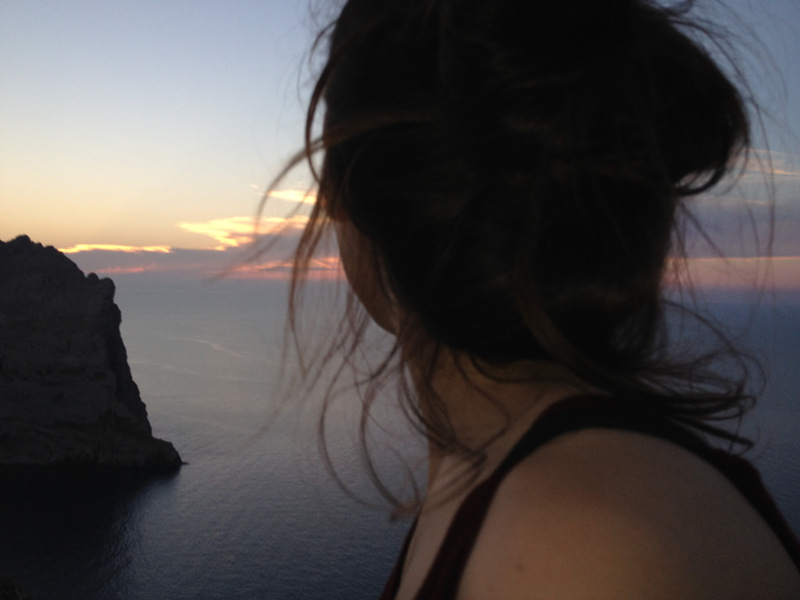
- La Balanguera
Joan Alcover’s classic poem, La Balanguera, became the official anthem of Majorca in 1996. One of the most talented local singers, Maria del Mar Bonet, was responsible for making this touching poem a unique hit.

Joan Alcover’s classic poem, La Balanguera, became the official anthem of Majorca in 1996. One of the most talented local singers, Maria del Mar Bonet, was responsible for making this touching poem a unique hit.

It wasn't until 1996 that Joan Alcover’s classic poem, "La Balanguera," became the official anthem of Majorca, a little island in the Mediterranean Sea. One of the most talented local singers, Maria del Mar Bonet, was responsible for making this touching poem a unique hit that describes history and tradition so well.
In Majorcan culture, the balanguera is a well-known character appearing in many children’s songs alongside much less beloved witches, such as Maria Enganxa (Maria the Catcher). A balanguera is an archaic term designating a woman who works as a weaver or seamstress, but from the first line of the song, this bucolic tale of an old woman weaving and spinning becomes much more than just a story about a piece of clothing. The old weaver knows the past and traditions, and she builds for the future of those who will survive her, her family, her neighbors, and those with whom she shares her culture, history, and language. Before globalization and mixed cultural identities, this is what made a nation. Therefore, the moral of the song is as simple as “don’t let ourselves forget our memories and roots, that’s what a nation is made of.” Not a bad notion for an anthem!

The whole poem is a rustic tale about this “mysterious” balanguera, who the author compares to the Parcae, the three immortal Roman goddesses in charge of controlling the thread of life. Likewise, our seamstress unwinds “sa filosa” (her distaff) which holds “el fil” (the thread) of our lives. Although we don’t know what she might do with it yet, we know that everything she does, she does it for “demà” (tomorrow). After describing her daily routine, the second and third strophes are dedicated to the key point of the song: the memory of the past and the future. By turning her glance to the past (“Girant l'ullada cap enrera”), to the shades of ancestry (“ombres de l’avior”), and also to the new spring (“nova primavera”), she puts up the traditions and hopes (“tradicions i esperances”) that she may use to make her piece of clothing. The poet reveals that this balanguera is weaving the flag of the nation (using the word “senyera” for flag, an archaic word instead of the more common “bandera”) for the youth (the “jovent”).
In the end, these young heirs have their own commitment to the anthem and to their history, as the poet compares the flag to a wedding veil (“vel de noviances”). It is a point of no return. Those little kids who used to dance in circles, singing about the balanguera, now have to keep their traditions as if they were married to them, carrying their sweetest childhood memories along with the oldest ones, as if they were gold and silver hairs (“cabelleres d'or i argent”). This single balanguera could be a symbol for all women who spend their lives weaving and spinning. We can picture her sitting on a small, low chair made of wicker, next to the tiny wooden front door of a house built on a cobbled street. Such a place, full of local color, could still be found today anywhere in Majorca, as well as in the other Balearic islands: Minorca, Ibiza, and Formentera.

Due to the geographical distance from other areas where Catalan is spoken, words like balanguera can still be heard when listening to any Balearic dialect. It is living proof of ancient Catalan, although sadly mixed with Spanish after Franco’s dictatorship forced many generations to forget about any other language. However, almost 40 years of banning any form of expression in Catalan was not enough to destroy a language, which can still beautifully explain our past, just as our grandmas used to do.